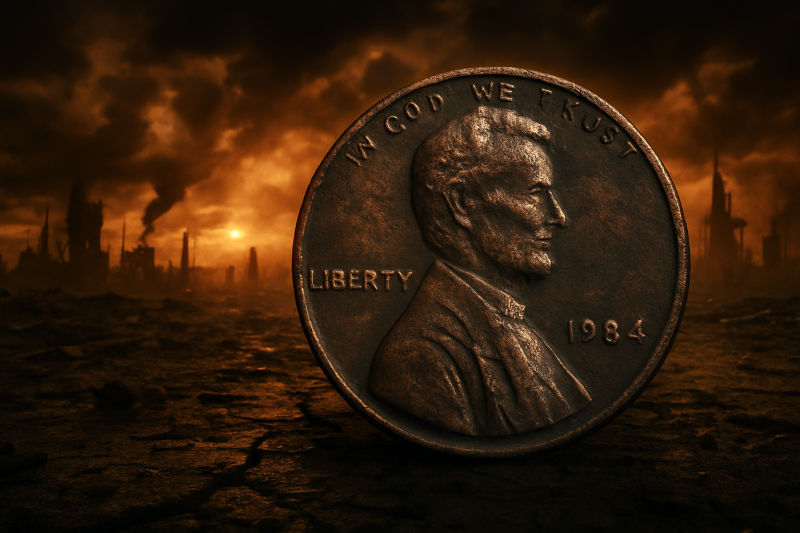
They’re killing the penny.
As of 2026, the U.S. Treasury will no longer mint one-cent coins. A piece of metal that’s been around since 1793, something most people don’t even think twice about unless they’re fishing through a coin jar or holding up the checkout line at the gas station. It sounds trivial at first—one cent, what’s the big deal? But the truth is, this isn’t just about some scrap of copper and zinc. It’s about class, accessibility, and the slow but deliberate dismantling of the systems that poor and working-class people rely on every day.
The argument coming from the top is that the penny costs too much to make—3.69 cents to produce a coin worth just one cent. Treasury Secretary Scott Bessent says it’ll save $56 million a year. And sure, that’s a lot of money on paper. But what does that $56 million really mean when this government is constantly pumping billions into military spending and corporate bailouts? Where is this urgency when it comes to health care, housing, education, or feeding hungry families?
Let’s call it what it is: this is not about efficiency. This is about convenience—for corporations and for a digital-first economy that keeps pushing everyone into a cashless future, whether they’re ready for it or not.
And guess who’s not ready for it? Poor people. The elderly. Immigrants. Rural communities. Black and brown folks who are unbanked or underbanked. People who rely on exact change to make things work—to split a bill, buy a bus ticket, feed a parking meter, or grab something small from the corner store. There’s a huge population in America that still lives in a cash economy, and they’re the ones who are going to suffer when prices are rounded up instead of down.
That’s the reality here. You think Walmart’s going to round their prices in favor of the consumer? Please. It’s going to be $4.98 becoming $5.00. $2.02 becomes $2.05. A few cents here and there might not feel like a lot to someone with a savings account or a credit card, but when you’re living paycheck to paycheck, every damn cent matters. And over time, those “few cents” add up to food off the table, money out of gas tanks, or medicine left on the shelf.
There’s also the symbolic weight of this. Getting rid of the penny feels like a message. Like the government is saying, “We don’t care about small change—and by extension, we don’t care about the people who need it.” And while we’re here, let’s not pretend this isn’t tied up in racial and economic inequality. The communities who will be hit hardest by this decision are the same ones who are already neglected, ignored, or policed.
And it’s not just about spending, either. What about saving? Penny jars. Coin counters. Kids learning the value of money. Tipping culture. Street musicians. Homeless folks with cups out for spare change. You erase the penny and suddenly you chip away at the tangible parts of community, learning, and dignity. You make it just that much harder for people to survive and for everyday human kindness to be expressed.
Let’s also be real—this is a country where inflation is squeezing the life out of us. Eggs are four bucks, rent is criminal, and wages haven’t caught up to any of it. And yet, the government’s solution is to take away the last few cents we can control?
Abolishing the penny doesn’t just hurt—it feels cruel.
Because once again, a decision was made in some conference room full of millionaires who don’t carry cash and have never worried about how to split a $10 bill five ways. They will never know what it’s like to dig through couch cushions or a glove box for enough change to make it to payday. They won’t lose sleep over a few extra cents—but millions of Americans will.
And no, this isn’t about clinging to tradition. It’s about defending the practical, everyday tools that help people navigate an unfair system. It’s about making sure no one is left behind just because they’re not part of the digital elite.
I know to some, this whole thing might sound dramatic. “It’s just a coin.” But if you listen closely, you’ll realize what we’re really saying is: “It’s just the poor.”
And they’ve been saying that for far too long.
Add comment
Comments